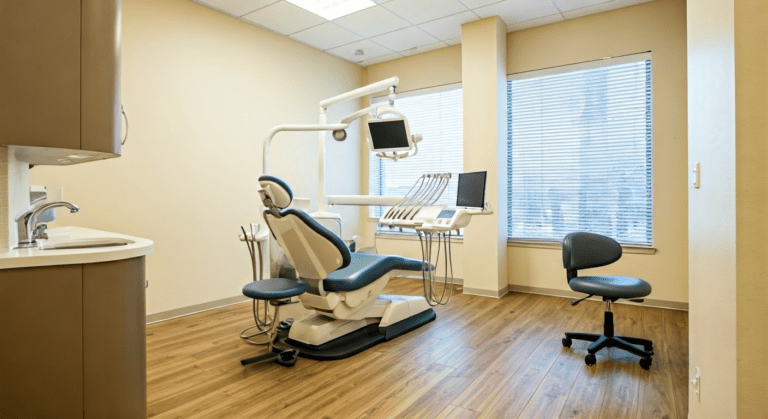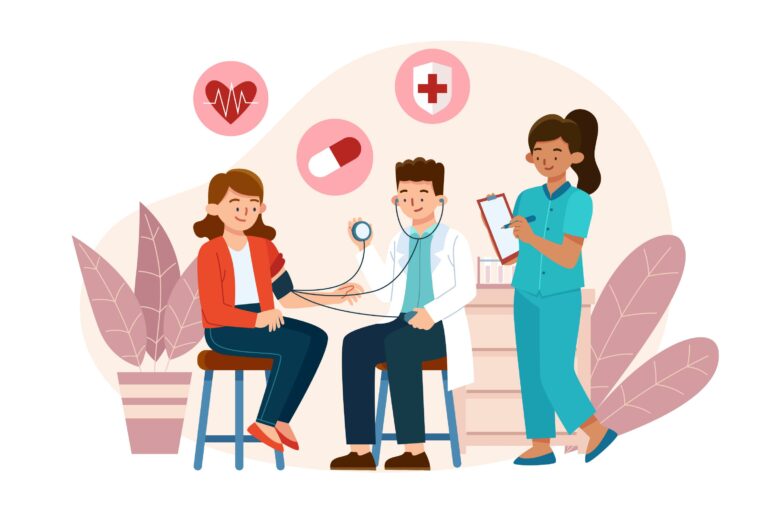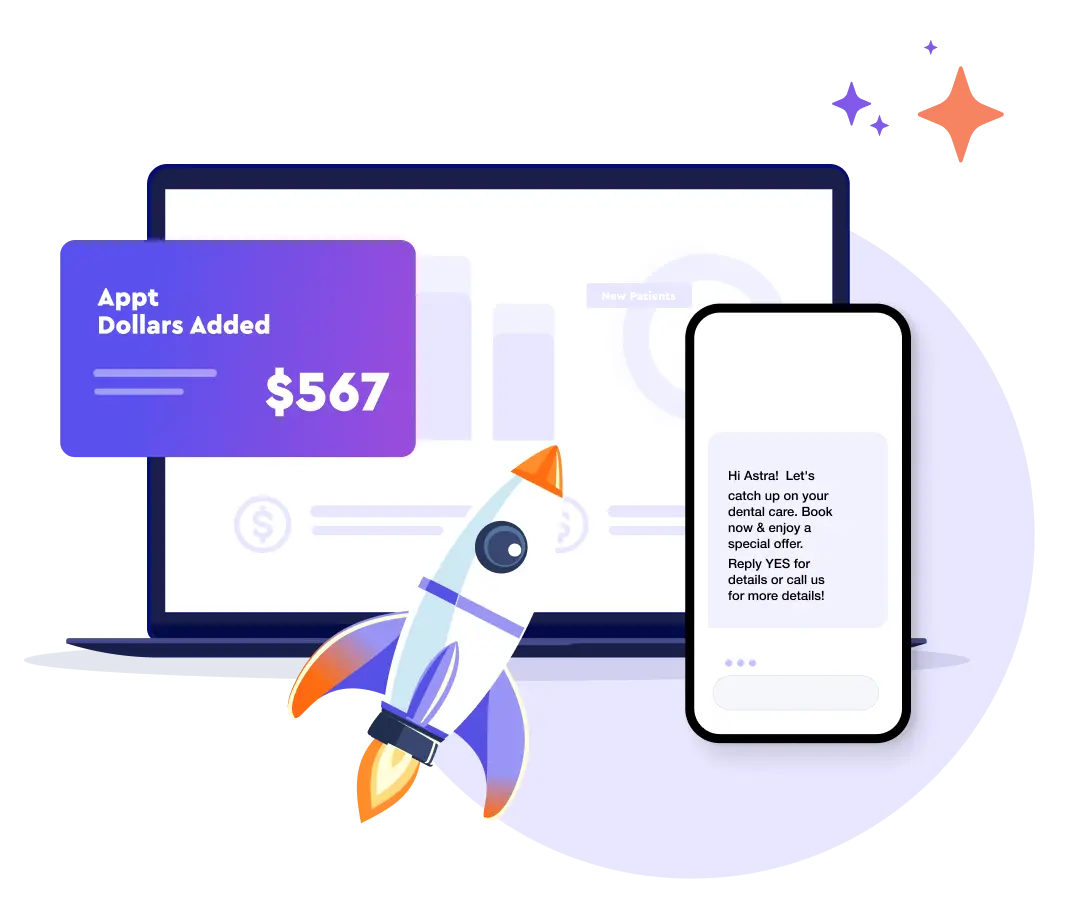How to Handle No Show Appointments in Your Dental Office?
Are frequent no-show appointments disrupting your appointment schedule and affecting your revenue? For dental practices, these challenges impact efficiency, patient care, and overall growth.
Reducing no-shows requires more than just appointment reminders. It calls for a structured approach, from staff training to effective waitlist management. In this blog, we will explore strategies to help you minimize missed appointments, keep your schedule full, and ensure a smoother workflow for your practice.
How No-Show Appointments Affect Your Dental Practice?

No-show appointments can disrupt scheduling, reduce revenue, and impact patient care in your dental practice. They create gaps in the schedule, affect staff productivity, and cause frustration for both patients and the dental team.
Financial consequences
- Every missed appointment results in lost revenue for healthcare practices in the United States. If a practice charges $100 per visit, a single no-show means a direct loss of $100. Repeated patient no-shows can add up to thousands in annual losses.
- In addition to lost income, no-show dentist appointments lead to wasted staff wages, unused dental supplies, and overhead costs for an unoccupied treatment room.
Impact on staff productivity
- When a patient does not show up, staff members lose valuable time that could have been spent assisting other patients or completing essential tasks.
- Frequent cancellations disrupt scheduling, requiring additional administrative work to fill empty slots, which increases stress and lowers overall efficiency.
- A high rate of patient no-shows can lead to frustration among staff, affecting job satisfaction and morale over time.
Effective Communication Strategies to Reduce No-Shows

One of the most effective strategies for reducing no-shows is through effective communication. This starts with educating patients about the importance of their appointments and ends with sending a variety of consistent reminders.
Close attention needs to be paid not just to what is communicated but also to how and when it's conveyed. Let us delve into this aspect further.
Appointment reminders: texts, emails, or calls
Implementing an efficient system of appointment reminders can significantly reduce the number of missed appointments. Such a system can ideally include phone calls, text messages, or emails tailored to each individual patient’s preference. Here are some key elements:
- Appointment Confirmation: Send an immediate confirmation via text, email, or call when a patient books an appointment. This reinforces their commitment and serves as the first reminder.
- Timely Follow-Ups: A few days before the appointment, send a detailed reminder with the date, time, and any necessary preparation instructions.
- Same-Day Reminders: A quick reminder on the day of the appointment helps busy patients remember their visit, thereby improving patient loyalty and reducing last-minute no-shows.
- Patient Preferences Matter: Some patients prefer text messages, while others respond better to calls or emails. Tailoring reminder methods improves effectiveness.
Tailoring reminder strategies based on patients’ preferences enhances communication effectiveness, therefore improving their probability of attendance.
Importance of clear communication
- Set Clear Expectations: Let patients know about your cancellation and rescheduling policies upfront, so they understand the importance of notifying the office in advance.
- Encourage Two-Way Communication: Allow patients to ask questions, voice concerns, or reschedule in advance rather than skip the appointment.
- Address Common Barriers: Discuss treatment-related anxieties and financial concerns to prevent last-minute cancellations.
How AI and Automation Can Help Reduce No Shows?
Utilizing AI and automation in your dental practice can significantly decrease no-show appointments. These tools can streamline scheduling, send automated reminders via text or email, and even analyze patterns to predict potential no-shows. By incorporating these technologies, you can improve patient engagement, reduce missed appointments, and ultimately enhance the efficiency of your practice. AI and automation offer a proactive approach to managing appointments, helping to ensure a more consistent schedule and increased revenue.
Use of scheduling software
Innovative scheduling software can significantly simplify the appointment booking process for both patients and practice staff.
Smart Scheduling Software for Seamless Appointments
Traditional scheduling often relies on manual processes, leaving room for errors and inefficiencies. AI-powered scheduling tools analyze past appointment trends, patient behavior, and peak hours to optimize bookings. AI-driven systems can identify patients who have a history of no-shows and prompt staff to follow up with additional confirmations, reducing the likelihood of missed appointments.
Automated and Predictive Reminders
Missed appointments are often due to forgetfulness or last-minute conflicts. AI-driven automated reminders help solve this issue by sending texts, emails, or calls at optimal times based on patient preferences. PbN’s AI-Optimized Reminders ensure patients receive timely and personalized notifications, reducing the risk of no-shows.
Beyond reminders, AI can predict potential no-shows using historical data. Suppose a patient has a pattern of last-minute cancellations. In that case, the system can flag them, allowing staff to take proactive measures—such as double-confirming their availability or offering alternative slots in advance.
AI-Powered Patient Engagement
Effective communication is key to appointment adherence. AI chatbots and virtual assistants facilitate instant communication by providing immediate responses to patient inquiries, handling frequently asked questions, and assisting with real-time rescheduling. With these tools, patients can conveniently manage their appointments without waiting for staff assistance, leading to improved engagement and fewer missed visits.
Benefits of automated reminders
Automated reminders are one of the most effective ways to reduce patient no-shows by ensuring timely and consistent communication, enhancing patient access. They eliminate the need for manual follow-ups, saving staff time while improving patient attendance.
- Timely Notifications – Sending reminders at strategic intervals, such as a week before, a day before, and on the day of the appointment, helps patients stay informed and reduces forgetfulness.
- Customizable Messaging-Personalized reminders that include appointment details, preparation instructions, and easy rescheduling options help patients stay committed to their visits.
- Reduced Administrative Workload – With automation handling reminders, front desk staff can focus on more critical tasks instead of manually calling patients to confirm appointments.
- Improved Patient Accountability-Frequent reminders encourage patients to confirm their visit or reschedule in advance, allowing the practice to fill gaps efficiently.
Implementing a Cancellation and No Show Policy

A well-implemented cancellation and no-show policy can be instrumental in reducing the number of missed appointments. By clearly outlining the expectations regarding cancellations and no-shows, practices can encourage patients to take their commitments seriously and show an appointment policy that supports both parties. Let's discuss in further detail how effective policies can aid in setting proper expectations with patients and influence how clinics deal with missed appointments.
Setting expectations with patients
To maintain an efficient scheduling system, it’s crucial to establish clear expectations from the very first appointment. Here’s how:
- Transparent Policy Communication – Explain the cancellation and no-show policy during the initial visit and include it in appointment confirmations. Patients who understand the impact of missed appointments are more likely to respect their scheduled time.
- Educating Patients on Oral Health Importance – Use reminders as an opportunity to emphasize the significance of regular dental care and how missed visits can impact their treatment plan progress. When patients recognize the value of each visit, they are more likely to prioritize their appointments.
- Encouraging Two-Way Communication – Providing patients with easy ways to reschedule, ask questions, or update their availability can help reduce last-minute cancellations. A patient-friendly scheduling process that allows flexibility encourages accountability without frustration.
- Introducing a Reward System – Recognizing and rewarding patients who consistently keep their appointments can be a great motivator. Offering small incentives, such as discounts on future treatments or entries into a loyalty program, can encourage timely attendance while fostering long-term patient engagement.
- Commitment Reinforcement – When booking appointments, requesting a verbal or written commitment can create a stronger sense of responsibility, making patients more likely to keep their scheduled time.
| Reward System | Description |
|---|---|
| Loyalty Points: | Offer points for each kept appointment that can be accumulated and used against future treatments. |
| Free Services: | Regular attendees could be rewarded with complimentary routine services like oral prophylaxis. |
| Progressive Discounts: | Design a program where the discount rate increases with consistent attendance. |
| Special Offers: | Bundle treatments into exclusive offers that can only be availed by regular attendees. |
This reward system not only encourages patients to keep their appointments but also creates positive reinforcement for them, contributing to their overall experience with your practice.
Charging for missed appointments
A well-implemented no-show fee policy can deter frequent cancellations, but it needs to be applied carefully:
- Clear and Fair Fee Structure – Patients should be informed upfront about cancellation fees and the acceptable notice period for rescheduling without a charge. Providing this clarity prevents misunderstandings.
- Balancing Accountability with Flexibility – While a no-show fee discourages casual cancellations, it’s essential to accommodate emergencies or unavoidable situations. Offering a one-time waiver or exceptions in genuine cases can help maintain patient trust.
- Reinforcing Value Over Penalty – Instead of focusing solely on financial consequences, emphasize how consistent attendance benefits the patient’s oral health and ensures efficient treatment progression.
- Convenient Online Payments – Simplify the process by allowing patients to pay cancellation fees securely through online payments. A hassle-free payment system encourages compliance while reducing administrative workload.
How a Short-Call List Can Help Reduce No Show Losses?
A short-call list in your dental office can be a game-changer for reducing no-show losses. By proactive outreach to patients with last-minute cancellations, you can fill these slots quickly, minimizing financial impact. This list helps maintain a steady flow of appointments and ensures efficient utilization of resources. Implementing this strategy fosters patient engagement and loyalty by catering to their needs promptly, ultimately enhancing the overall patient experience and practice revenue. Utilizing a short-call list can significantly mitigate the effects of no-shows on your dental practice.
Maintaining an Effective Short-Call List
An efficient short-call list can be game-changing in managing missed appointments. However, it requires careful maintenance and regular updates for maximum effectiveness.
| Elements of a Short-Call List | Description |
|---|---|
| Updating Information: | Keep the list updated with the current contact information of patients to ensure quick and successful communication. |
| Patient Preferences: | Document and respect patient preferences about how and when they prefer to be contacted for last-minute openings. |
| Regular Communication: | Stay in touch with the patients on this list frequently so they remain receptive to taking up last-minute slots. |
By keeping a regularly updated, well-managed short-call list, you can minimize schedule disruptions caused by last-minute cancellations or no-shows.
Efficiently contacting patients on the list
The effectiveness of a short-call list depends on how quickly and professionally patients are contacted when openings arise.
- Quick and Organized Outreach – Develop a clear process to reach patients in an efficient order. Use automated call or text notifications to speed up the process while maintaining a personal touch.
- Professional and Positive Communication – When offering a last-minute slot, avoid making the patient feel like a backup option. Instead, frame it as an exclusive opportunity, reinforcing that they are being prioritized for early treatment.
- Clear and Concise Messaging – Ensure that the communication includes essential details—appointment time, provider name, and any special instructions—to make decision-making easier for the patient.
By efficiently managing and utilizing a short-call list, dental practices can keep their schedules full, enhance patient retention, and improve overall productivity.
Staff Training Tips for Managing Last-Minute Cancellations
Implement a structured protocol for last-minute cancellations, including clear guidelines on rescheduling to optimize appointment slots. Train staff to handle cancellations empathetically, offering alternatives promptly. Use NLP strategies for effective communication, such as understanding patient concerns and providing suitable solutions. Encourage staff to utilize patient portals or text reminders for efficient communication. Foster a positive environment by acknowledging patient issues and accommodating their needs where possible.
Educating about the impact of no-shows
Training your staff about the impact of no-shows can increase their efficacy in dealing with it. Key areas of education include:
- Revenue Loss: Staff should understand that each missed appointment leads to lost revenue that could have been earned from servicing another patient, which can ultimately affect patient satisfaction.
- Resource Underutilization: Teams need to know that no-shows lead to underutilization of both human and infrastructural resources, which adversely affects the practice's bottom line.
- Patient Care Impact: They should be educated about how missed appointments affect overall patient care. Understanding this connection will improve their communication with patients regarding the importance of keeping appointments.
- Operational Disruptions: Staff should understand the operational hassles caused by large-scale no-shows, such as rescheduling complications and time management issues.
Once your dental practice staff comprehends the broader implications of appointment adherence, they are better positioned to communicate and address these issues with your patients.
Reduce No-Shows and Keep Your Schedule Full with Practice by Numbers
Missed appointments can disrupt your workflow and impact revenue, but with Practice by Numbers, you can take control of your schedule. Our intelligent automation tools help prevent no-shows by sending timely reminders, optimizing patient communication, and filling last-minute cancellations with ease.
With AI-powered insights, real-time scheduling adjustments, and seamless patient engagement, PbN ensures your practice stays productive. Let automation handle the follow-ups while you focus on delivering exceptional patient care. Contact us today at (866) 216-8416
Conclusion
Managing no-shows and cancellations effectively is crucial for the functioning of every dental office. A multi-faceted approach combining effective communication, utilization of technology, and policy enforcement can play a pivotal role in addressing this issue. Furthermore, making use of strategies like pre-payments and reward systems can create an environment where patients feel valued and motivated to honor their commitments. Empowering staff with the required training can also make a sizable difference. While there might still be unavoidable no-show scenarios, implementing these strategies can significantly reduce their frequency, helping you maintain the smooth operation of your practice while ensuring superior patient care.




